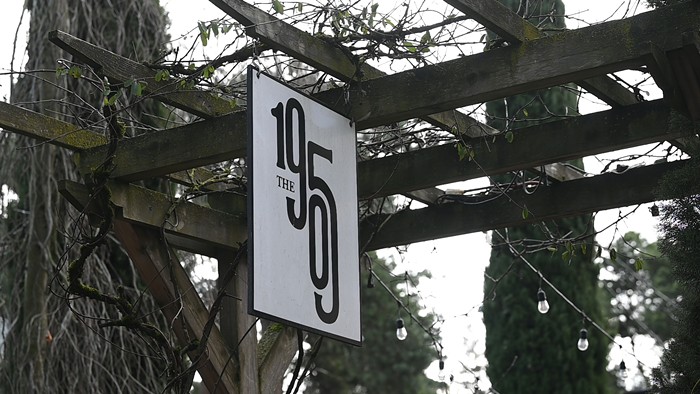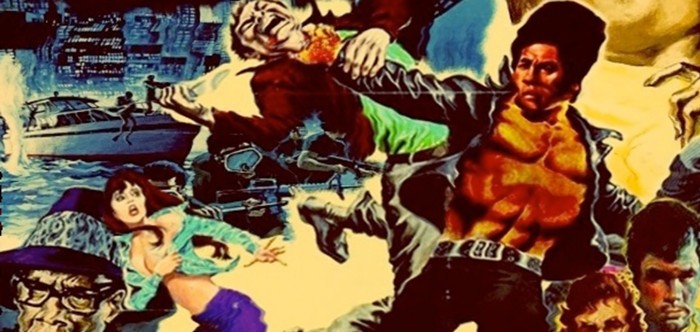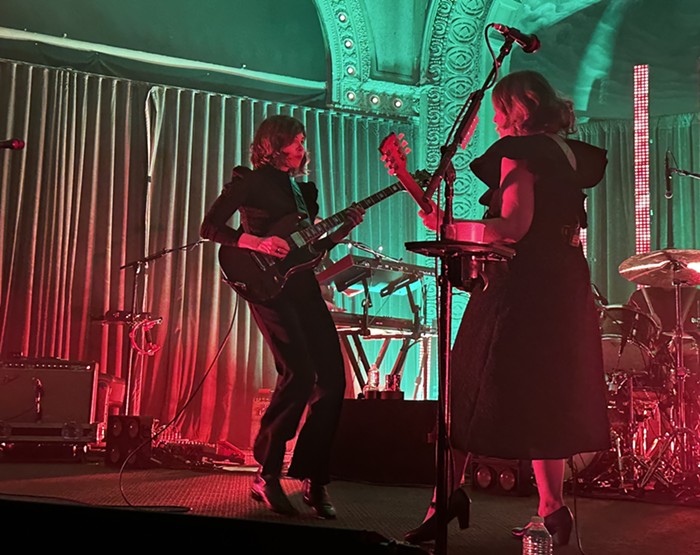IT’S EASY to see that Fred Thomas is a well-rounded songwriter; he’s done a lot of living. Even though his main job is producing and recording—the work he did with Stef Chura’s new album Messes immediately springs to mind—he has more to talk about than gear.
Thomas and I grew up in the same Michigan indie/avant-garde music scene, but we’d never spoken before this interview. I knew him from some of his bands (he was in a lot of bands), like the sprawling, lo-fi pop ensemble Saturday Looks Good to Me. Thomas spent over 10 years learning how to organize sounds, which is obvious on his solo records. His new album Changer bears hallmarks of this experience: Horns swell at the end of “Voiceover,” and a string arrangement closes “Mallwalkers.”
Changer is a great walking-around record. There’s enough energy to pump your bod, and enough soulful rumination to engage your mind. Is it clichéd to say listening is like talking to someone? The 13 tracks ebb and lull conversationally, as though they’re entering and circling back upon topics. Here Thomas’ well-orchestrated, Sonic Youth-influenced folk songs break down into immersive, Johnny Jewel-esque synthesizer instrumentals where they would’ve spread out into noise jams on his 2015 album, All Are Saved.
Thomas says these synth compositions were a byproduct of moving with his wife to Montréal, Canada, where she’s pursuing a graduate degree. He suddenly found himself in an apartment where he couldn’t play loudly, so he started composing “10-minute droney songs” that he listened to on headphones. “I did finish a version of the record that was super long, almost stressfully long,” he says. But he decided to keep most of the instrumental tracks between two and four minutes, hoping “that would be enough to get the emotional push without boring the audience to tears.”
He’s so affable that we spend a long time talking about the lyrics of Changer, which is named for both his marriage and move to Canada. His metaphors are sometimes tangential and supremely specific, strangling stories into the verse meter. On the song “Open Letter to Forever” he describes a time when some street punks called him a hipster outside the Northern (a Detroit bar): “Man I’m probably a couple years younger than your father/And I’ve traded in any chance of stability/For this community/Of people who like know what Black Flag is or whatever.” It’s impossible that anyone shares his exact experience, but we’ve all probably been there metaphorically.
Another lyric we spend time on: “While the unholy Midwest drunk drivers/Lace up the highways like always,” from “August Rats, Young Sociopaths.” I ask whether he thinks drinking and driving is specifically a problem in Michigan. “I just remember in Michigan, how epicentral alcohol was to everything and the way it was everywhere,” he says. “You had to drive everywhere, but also people were excited about partying very hard. They even had it as a personality sometimes. Like, what does that guy do? Oh, he fucking parties. A LOT. Oh, is he a painter? Does he work on cars? No, he fucking parties. That’s what he does.”
At one point Thomas apologizes, “I’m going on so many tangents in this interview. I’m sorry, I know that’s a pain in the ass to deal with.” I tell him it really isn’t.
“I was talking to a friend of mine on the phone the other day,” Thomas says, “and he was like, ‘I’m really excited to see you, but I’m 90 days sober and I’m freshly in the program so I’m not gonna be drinking. I really hope that you can be cool about that and we don’t have to hang out at a bar.’ I was like, ‘Oh my god! Fuck yes! That’s so cool!’ And for some reason it fascinated me in the same way that I felt when I was 14 and kids would be like, ‘I got drunk last night. I took some stuff out of my parent’s liquor cabinet.’ I’d be like, ‘Oh fuck! That’s amazing! What was it like?’ This is the same feeling, full circle. That’s amazing.”


















